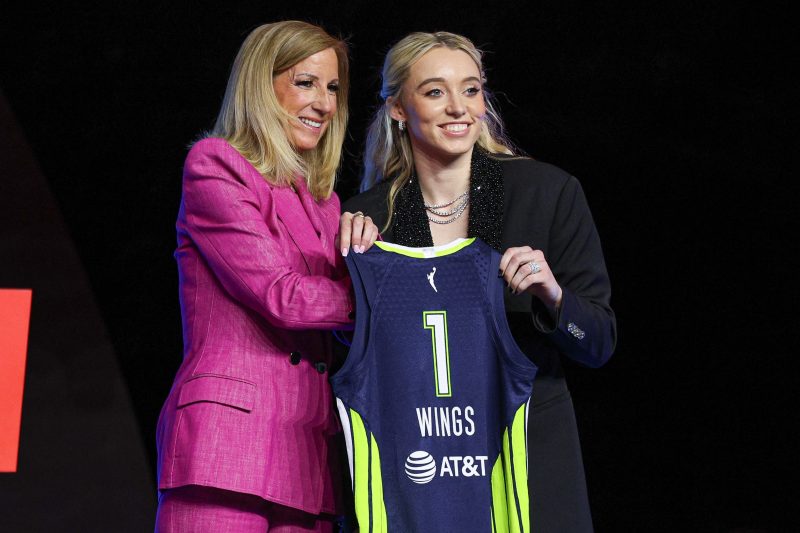It’s practically a given for leagues and owners to cry poverty at some point during contract talks.
David Stern famously did it in 2011, saying the NBA was losing money. Adam Silver raised similar concerns four years later. Major League Baseball’s current contract doesn’t expire until the end of next season, yet Rob Manfred is already putting the idea out there.
The implication of this kind of hand-wringing, of course, is that the leagues can’t possibly have the money needed to give the players what they’re asking. But it’s usually more negotiating tactic than reality, a way of moving the bar lower.
The WNBA won’t have that luxury this time around.
Sportico released its latest valuation of the 13 WNBA teams on Tuesday, and the numbers are jaw-dropping. The Golden State Valkyries lead the league with a $500 million valuation, which is a whopping 10 times what owners Joe Lacob and Peter Gruber paid to get the expansion team just two years ago.
The average valuation is $269 million, and six teams are worth $250 million or more.
Now, those numbers pale in comparison to the $10 billion the Los Angeles Lakers sold for last week. But aside from the fact the W is still playing catchup, beginning 50 years after the NBA, that average valuation of $269 million is a 180% increase from last year.
And that, according to Sportico, is more than double the previous record gain by a sports league.
To put it simply, the W is a growth stock. A rocket-fueled one. And the players know it.
‘This is a defining moment for the WNBA. As the league grows, it’s time for a CBA that reflects our true value,” Chicago Sky veteran Elizabeth Williams said over the weekend, echoing a message shared by several other player reps.
“We’re fighting for a fair share of the business that we built. It’s business. We’re not fighting for anything unreasonable. We’re fighting to share in the growth that we’ve created,” Williams added. ‘Every other category across this business has grown: Media rights, ticket sales, team values. The only thing that’s still capped is player salaries. We deserve our fair share. We’re demanding salaries that reflect our true value. Again, it’s business.”
Negotiations between the WNBA and the Players Association are private, so it’s unclear what prompted the collective warning from players over the weekend. Maybe they got wind of Sportico’s valuations. Maybe it’s a result of the op-ed in the New York Times earlier this month by Noble Prize-winning economist Claudia Goldin, who said W players are making 1/80th of what NBA players make rather than the one quarter or one third that would be required for equitable pay.
And before the peanut gallery chimes in, W players are not asking for LeBron money. They’re not even asking for Cooper Flagg money, assuming he’s the No. 1 pick that he’s expected to be Wednesday night.
What they are asking for is a fair share, and the W and its owners are going to have to open their wallets to get them there.
Currently, W players get about 10% of the league’s revenues. That’s less — way less — than the roughly 50% of revenues that players in the NBA, NFL, MLB and NHL get. Yes, the W has stepped up, finally providing charter flights last year for the entire season and boosting the payout for the Commissioner’s Cup. Some individual teams now have their own practice facilities, an “amenity” that’s been a given in men’s sports for years.
But there’s more to be done. Much more.
This isn’t a charity project, either. The Sportico valuations confirm what has been evident for the last five years: There is money to be made in women’s sports. A lot of it. But sports are driven by stars, not owners. Fans are shelling out for tickets, merch and the league pass because of Caitlin Clark, A’ja Wilson, Napheesa Collier, Angel Reese, Breanna Stewart and Paige Bueckers, not because of any owner.
Which means the players need to be equal partners.
“The current system is unsustainable for us and that means it’s unsustainable for the business that we created. Nothing short of transformational change will do for the future we see and the fans clearly see,” Williams said. “So we’re paying attention.”
The W players know their value. More importantly, they know the value of the league and its teams, too.
Follow USA TODAY Sports columnist Nancy Armour on social media @nrarmour.

